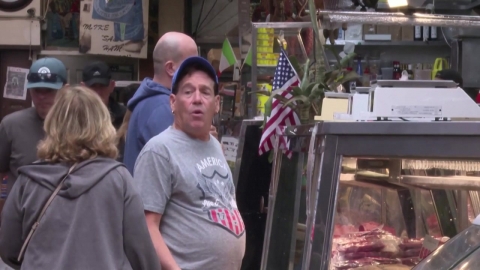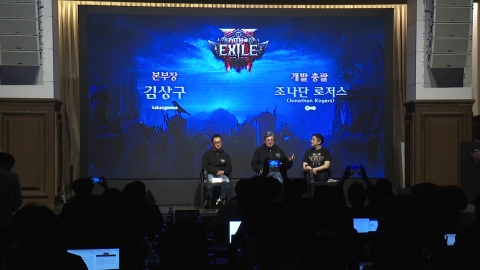[New Square 10] Bitcoin is close to $100,000...Ripple 26% 'Increase' surpasses $2 in 6 years
■ Host: Um Ji-min Anchor
■ Starring: Kwon Hyuk-joong, an economic critic
* The text below may differ from the actual broadcast content, so please check the broadcast for more accurate information. Please specify [YTN New Square 10AM] when quoting.
[Anchor]
After the U.S. presidential election, the virtual currency market has been in a high-flying mood. Politicians have agreed to delay taxation of virtual assets by two years. Let's take a look at the economic news this week with Kwon Hyuk-jung, an economic critic. Welcome. Bitcoin is on the verge of $100,000 for the first time ever. Articles like this are coming up, so how is the market atmosphere now?
[Recommending]
Once again, it's continuously moving towards $100,000, you can see it like this. The market is carefully predicting that it will probably exceed $100,000 soon. Not only bitcoin but also altcoins continue to show a big rise together. It's on the chart right now, but in the case of Ethereum, Terror, and Ripple. In particular, there is a part where Ripple is jumping a lot. That's why altcoins are generally running high. The Bitcoin Market Is on the Issue. So, as you know Bitcoin, he jumped more than 40% after becoming Trump's president-elect. So because of the issue, it's rising now, and other altcoins continue to have their own issues. Especially, there were a lot of issues with Ripple recently. As a result, the price is jumping so much, so you can organize it like this.
[Anchor]
We have 26% on the ripple graphic, but when I saw it just now, it went up to 32%. Politicians have been discussing taxes on virtual assets, and they say they are postponing it again.
[Recommending]
So, I personally think that taxation should be done, not a grace period, but originally, virtual assets were supposed to be taxed at 22% on profits of more than 2.5 million won, including local taxes, from January 1 next year.
[Anchor]
That's what all U.S. stocks do.
[Recommending]
In the case of the United States, it's actually a capital gains tax, so it's the same in the United Kingdom. It is taxed more than 20%.
Japan classifies it as miscellaneous income. That's why it's taxed comprehensively. So, up to 50% is taxed, but only Korea is not taxed. So, actually, taxation is now recognized as an asset.
As many of you know, there are a lot of people who have invested in virtual currency. In particular, this is government data.
There are a lot of men in their 40s and 30s. So, since people who work in the company invested a lot, the political world couldn't help but pay attention. So in the end, the ruling party talked about a two-year grace period, but this was agreed. So, I think the market sees that the virtual currency taxation will be suspended for about two years once again.
[Anchor]
That's why some point out that the market itself is too overheated. However, there were concerns that the suspension of taxation would further encourage speculation.
[Recommending]
But I don't see it like that in the actual market. First of all, in the case of speculation, as more people have invested in a virtual currency exchange, that is, not an official virtual currency exchange, there are actually cases of damage. If you look at the trend of people who have invested in Korea's virtual currency exchange and officially recognized exchanges, you are actually the one who has been steadily coming in due to the current issue, not speculation. So, rather than whether it was taxed or not, I think it would be more appropriate to tax virtual currency for the overall healthy market. This economic agenda will eventually be pushed back by the political agenda. I personally feel like, "Let's put it back for about 2 more years because I have a headache." So I would have liked it to have been a little bold, but I'm telling you that it will be postponed again this time.
[Anchor]
There are opinions that it would be better to supplement it and implement it, but we decided to postpone it for now. I'll talk about this, too. People in their 40s act as the waist of our economy. By the way, I heard that business income in their 40s has decreased the most since the statistics were compiled, why is that?
[Recommending]
People in their 40s are acting as if they were talking about the role of the waist of our society. So I looked at the third quarter. As of the third quarter of 2023, it was about 1,236,000 won, but if you look at the third quarter of this year, it was about 1,074,000 won per month. So if you look at it, it's down 13%. That's how much business income for people in their 40s is actually falling. It's the biggest drop ever. As you know, you said it. It serves as a waist. The same goes for the self-employed ecosystem. It's a time when people in their 40s are really active, but falling business income means that their families' livelihoods are at stake. So, small business owners are having a hard time right now, and the first reason is the sluggish domestic demand. I don't have money because domestic demand is not working. Small business owners have to make money by doing business, but they don't spend it, so they don't open their wallets, so you can't actually make money. It was because high interest rates were maintained.
The second is slowing growth. As the growth rate slows, even large corporations actually don't release money. So there's literally no room for money. That's why self-employed people can't do business. I'm more worried about next year from this. As you know now, next year's big companies are actually tightening their management, so maybe next year... In this year's case, big companies have released money. But I don't think I'll be able to solve it next year. Looking at the current situation, small and medium-sized enterprises are struggling, and even that is losing export power because of the tariff part. As a result, large companies will not release money, and eventually the market will dry up. So, once again, I say that we need to increase fiscal spending and make some parts that can be overcome.
[Anchor]
You mentioned earlier that domestic demand is sluggish, but when it becomes difficult to make ends meet, it is difficult for us to reduce food expenses, so people save money on buying clothes. So, recently, statistics have been released that have reduced the amount of money spent on medical care, so how will this prolonged sluggish domestic demand affect our economy?
[Recommending]
You said it really well. I think the viewers will all agree with me when I ask them a question. If I don't have money. If you think about it first, you can't eat less. Next, we can't reduce children's education expenses well. The least I can reduce is the one I use. But what I use, most of them are clothes. That's why these non-essential consumer goods reduce consumption. In fact, shoes and medical care accounted for 3.9% of the total consumption expenditure, the largest ever. So you can think of it as actually reducing the money on wearing clothes now, and now the high price continues, so the high interest rate continues. So, we are going in a structure that has no choice but to reduce consumption. The retail sales index has been declining for eight consecutive months. It's going to be more of a problem in the future. It means that it's not that domestic.
These things are compounding our economy. So I think these points will get worse next year. So, I would like to say once again that sluggish consumption eventually acts as a downside factor that suppresses our economic growth rate, so we need to start reviving domestic demand quickly.
[Anchor]
Consumers are closing their wallets like this, but the news that prices have risen keeps coming out. Recently, the international price of cocoa has soared due to the abnormal climate, and the price of chocolate snacks has also increased one after another.
[Recommending]
That's right. How cocoa prices are moving in the futures market is $9425 per ton. If you look at it like this, you won't know. It's up 127% from a year ago. If you look at it compared to the average year, it has risen by about 246%. That's how much cocoa prices are going up now, so what do we make with cocoa? They make chocolate snacks or something. So Orion and Haitai Confectionery all raised their prices. The number of chocolates that you eat a lot has risen by 20%. It went up since yesterday. That's why people like this are burdened. And the number of home run balls you eat a lot also rose 11%. So, for many people, confectionery and confectionery are bound to be burdensome to buy. The reason for this is that the cultivation area has also decreased and the area itself has decreased due to abnormal climate phenomena. And then the crops were not good either.
Of course cocoa prices are jumping and it's the value chain. Literally, we have no choice but to go in a structure where snack products are bound to jump. Same thing. This is also likely to have an adverse impact on prices next year, I say.
[Anchor]
As you pointed out, the price of chocolate has risen and the price of beans has also risen, and confectionery and dessert companies release Christmas cakes because it's the end of the year. But I think I'm going to be hit directly because chocolate and coffee beans are all up now.
[Recommending]
That's right. The price of dessert is bound to rise significantly. So, from a consumer's point of view, there are people who like coffee and people who like dessert, but their real income is bound to decrease further. My salary doesn't go up, but only what I enjoy eating goes up. As a result, real income will inevitably decrease. The biggest issue in society right now is actually polarization. The polarization problem is intensifying. Since it's a holiday yesterday, I went to a hotel and it's bright. They have a very nice tree, and the price of the cake is almost 400,000 won for a hotel, and it's really expensive. But on the other side, we talked about self-employed people in their 40s earlier. They're having a hard time. So social polarization is getting bigger and bigger. So the government's policy stance for next year is to resolve polarization. As you already know, we decided to resolve the polarization. The polarization of our society is so wide that it is an economic issue, but it is highly likely to rise to social issues. So I feel sorry for these things. Next year is worse. So these things are very concerning.
So once again, I want to say that we need to increase fiscal spending so that we can release money and become an economic cycle.
[Anchor]
You can feel the polarization just by looking at the price of the Christmas cake. I see. Let's stop here. So far, I've been talking with Kwon Hyuk-joong, an economic critic. Thank you.
※ 'Your report becomes news'
[Kakao Talk] YTN Search and Add Channel
[Phone] 02-398-8585
[Mail] social@ytn. co. kr
■ Starring: Kwon Hyuk-joong, an economic critic
* The text below may differ from the actual broadcast content, so please check the broadcast for more accurate information. Please specify [YTN New Square 10AM] when quoting.
[Anchor]
After the U.S. presidential election, the virtual currency market has been in a high-flying mood. Politicians have agreed to delay taxation of virtual assets by two years. Let's take a look at the economic news this week with Kwon Hyuk-jung, an economic critic. Welcome. Bitcoin is on the verge of $100,000 for the first time ever. Articles like this are coming up, so how is the market atmosphere now?
[Recommending]
Once again, it's continuously moving towards $100,000, you can see it like this. The market is carefully predicting that it will probably exceed $100,000 soon. Not only bitcoin but also altcoins continue to show a big rise together. It's on the chart right now, but in the case of Ethereum, Terror, and Ripple. In particular, there is a part where Ripple is jumping a lot. That's why altcoins are generally running high. The Bitcoin Market Is on the Issue. So, as you know Bitcoin, he jumped more than 40% after becoming Trump's president-elect. So because of the issue, it's rising now, and other altcoins continue to have their own issues. Especially, there were a lot of issues with Ripple recently. As a result, the price is jumping so much, so you can organize it like this.
[Anchor]
We have 26% on the ripple graphic, but when I saw it just now, it went up to 32%. Politicians have been discussing taxes on virtual assets, and they say they are postponing it again.
[Recommending]
So, I personally think that taxation should be done, not a grace period, but originally, virtual assets were supposed to be taxed at 22% on profits of more than 2.5 million won, including local taxes, from January 1 next year.
[Anchor]
That's what all U.S. stocks do.
[Recommending]
In the case of the United States, it's actually a capital gains tax, so it's the same in the United Kingdom. It is taxed more than 20%.
Japan classifies it as miscellaneous income. That's why it's taxed comprehensively. So, up to 50% is taxed, but only Korea is not taxed. So, actually, taxation is now recognized as an asset.
As many of you know, there are a lot of people who have invested in virtual currency. In particular, this is government data.
There are a lot of men in their 40s and 30s. So, since people who work in the company invested a lot, the political world couldn't help but pay attention. So in the end, the ruling party talked about a two-year grace period, but this was agreed. So, I think the market sees that the virtual currency taxation will be suspended for about two years once again.
[Anchor]
That's why some point out that the market itself is too overheated. However, there were concerns that the suspension of taxation would further encourage speculation.
[Recommending]
But I don't see it like that in the actual market. First of all, in the case of speculation, as more people have invested in a virtual currency exchange, that is, not an official virtual currency exchange, there are actually cases of damage. If you look at the trend of people who have invested in Korea's virtual currency exchange and officially recognized exchanges, you are actually the one who has been steadily coming in due to the current issue, not speculation. So, rather than whether it was taxed or not, I think it would be more appropriate to tax virtual currency for the overall healthy market. This economic agenda will eventually be pushed back by the political agenda. I personally feel like, "Let's put it back for about 2 more years because I have a headache." So I would have liked it to have been a little bold, but I'm telling you that it will be postponed again this time.
[Anchor]
There are opinions that it would be better to supplement it and implement it, but we decided to postpone it for now. I'll talk about this, too. People in their 40s act as the waist of our economy. By the way, I heard that business income in their 40s has decreased the most since the statistics were compiled, why is that?
[Recommending]
People in their 40s are acting as if they were talking about the role of the waist of our society. So I looked at the third quarter. As of the third quarter of 2023, it was about 1,236,000 won, but if you look at the third quarter of this year, it was about 1,074,000 won per month. So if you look at it, it's down 13%. That's how much business income for people in their 40s is actually falling. It's the biggest drop ever. As you know, you said it. It serves as a waist. The same goes for the self-employed ecosystem. It's a time when people in their 40s are really active, but falling business income means that their families' livelihoods are at stake. So, small business owners are having a hard time right now, and the first reason is the sluggish domestic demand. I don't have money because domestic demand is not working. Small business owners have to make money by doing business, but they don't spend it, so they don't open their wallets, so you can't actually make money. It was because high interest rates were maintained.
The second is slowing growth. As the growth rate slows, even large corporations actually don't release money. So there's literally no room for money. That's why self-employed people can't do business. I'm more worried about next year from this. As you know now, next year's big companies are actually tightening their management, so maybe next year... In this year's case, big companies have released money. But I don't think I'll be able to solve it next year. Looking at the current situation, small and medium-sized enterprises are struggling, and even that is losing export power because of the tariff part. As a result, large companies will not release money, and eventually the market will dry up. So, once again, I say that we need to increase fiscal spending and make some parts that can be overcome.
[Anchor]
You mentioned earlier that domestic demand is sluggish, but when it becomes difficult to make ends meet, it is difficult for us to reduce food expenses, so people save money on buying clothes. So, recently, statistics have been released that have reduced the amount of money spent on medical care, so how will this prolonged sluggish domestic demand affect our economy?
[Recommending]
You said it really well. I think the viewers will all agree with me when I ask them a question. If I don't have money. If you think about it first, you can't eat less. Next, we can't reduce children's education expenses well. The least I can reduce is the one I use. But what I use, most of them are clothes. That's why these non-essential consumer goods reduce consumption. In fact, shoes and medical care accounted for 3.9% of the total consumption expenditure, the largest ever. So you can think of it as actually reducing the money on wearing clothes now, and now the high price continues, so the high interest rate continues. So, we are going in a structure that has no choice but to reduce consumption. The retail sales index has been declining for eight consecutive months. It's going to be more of a problem in the future. It means that it's not that domestic.
These things are compounding our economy. So I think these points will get worse next year. So, I would like to say once again that sluggish consumption eventually acts as a downside factor that suppresses our economic growth rate, so we need to start reviving domestic demand quickly.
[Anchor]
Consumers are closing their wallets like this, but the news that prices have risen keeps coming out. Recently, the international price of cocoa has soared due to the abnormal climate, and the price of chocolate snacks has also increased one after another.
[Recommending]
That's right. How cocoa prices are moving in the futures market is $9425 per ton. If you look at it like this, you won't know. It's up 127% from a year ago. If you look at it compared to the average year, it has risen by about 246%. That's how much cocoa prices are going up now, so what do we make with cocoa? They make chocolate snacks or something. So Orion and Haitai Confectionery all raised their prices. The number of chocolates that you eat a lot has risen by 20%. It went up since yesterday. That's why people like this are burdened. And the number of home run balls you eat a lot also rose 11%. So, for many people, confectionery and confectionery are bound to be burdensome to buy. The reason for this is that the cultivation area has also decreased and the area itself has decreased due to abnormal climate phenomena. And then the crops were not good either.
Of course cocoa prices are jumping and it's the value chain. Literally, we have no choice but to go in a structure where snack products are bound to jump. Same thing. This is also likely to have an adverse impact on prices next year, I say.
[Anchor]
As you pointed out, the price of chocolate has risen and the price of beans has also risen, and confectionery and dessert companies release Christmas cakes because it's the end of the year. But I think I'm going to be hit directly because chocolate and coffee beans are all up now.
[Recommending]
That's right. The price of dessert is bound to rise significantly. So, from a consumer's point of view, there are people who like coffee and people who like dessert, but their real income is bound to decrease further. My salary doesn't go up, but only what I enjoy eating goes up. As a result, real income will inevitably decrease. The biggest issue in society right now is actually polarization. The polarization problem is intensifying. Since it's a holiday yesterday, I went to a hotel and it's bright. They have a very nice tree, and the price of the cake is almost 400,000 won for a hotel, and it's really expensive. But on the other side, we talked about self-employed people in their 40s earlier. They're having a hard time. So social polarization is getting bigger and bigger. So the government's policy stance for next year is to resolve polarization. As you already know, we decided to resolve the polarization. The polarization of our society is so wide that it is an economic issue, but it is highly likely to rise to social issues. So I feel sorry for these things. Next year is worse. So these things are very concerning.
So once again, I want to say that we need to increase fiscal spending so that we can release money and become an economic cycle.
[Anchor]
You can feel the polarization just by looking at the price of the Christmas cake. I see. Let's stop here. So far, I've been talking with Kwon Hyuk-joong, an economic critic. Thank you.
※ 'Your report becomes news'
[Kakao Talk] YTN Search and Add Channel
[Phone] 02-398-8585
[Mail] social@ytn. co. kr
[Copyright holder (c) YTN Unauthorized reproduction, redistribution and use of AI data prohibited]
Editor's Recomended News
-
President Yoon's order to "take forward-looking measures to boost domestic demand and consumption"
-
In response to the request for a seat..."Making a bloodbath in subway" Furious Tattoo Man in His 20s

-
"A singer who is exempt from military service, please stop appearing on the show".KBS's viewer bulletin board is flooded with complaints.

The Lastest News
-
Residents of the five islands in the West Sea first rally in Yongsan, "Ongjin-gun, to a special security zone."
-
 Korean-American pilot rescued abandoned dogs, sad fall death...a special memorial service
Korean-American pilot rescued abandoned dogs, sad fall death...a special memorial service -
재생
 Trump 'tariff bomb' is self-inflicted...In the end, it's for negotiation.
Trump 'tariff bomb' is self-inflicted...In the end, it's for negotiation. -
재생
![[News Now/Issue Call] North Russia shows off its military closeness...Visibility of additional dispatch?](https://image.ytn.co.kr/general/jpg/2024/1202/202412021255008626_h.jpg) [News Now/Issue Call] North Russia shows off its military closeness...Visibility of additional dispatch?
[News Now/Issue Call] North Russia shows off its military closeness...Visibility of additional dispatch?








